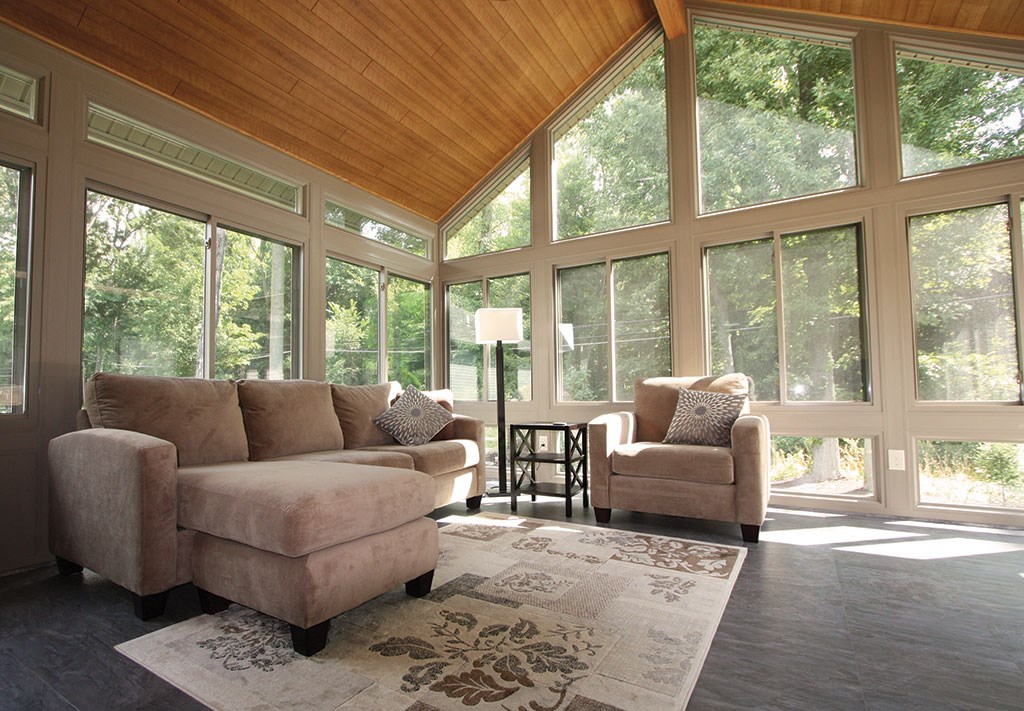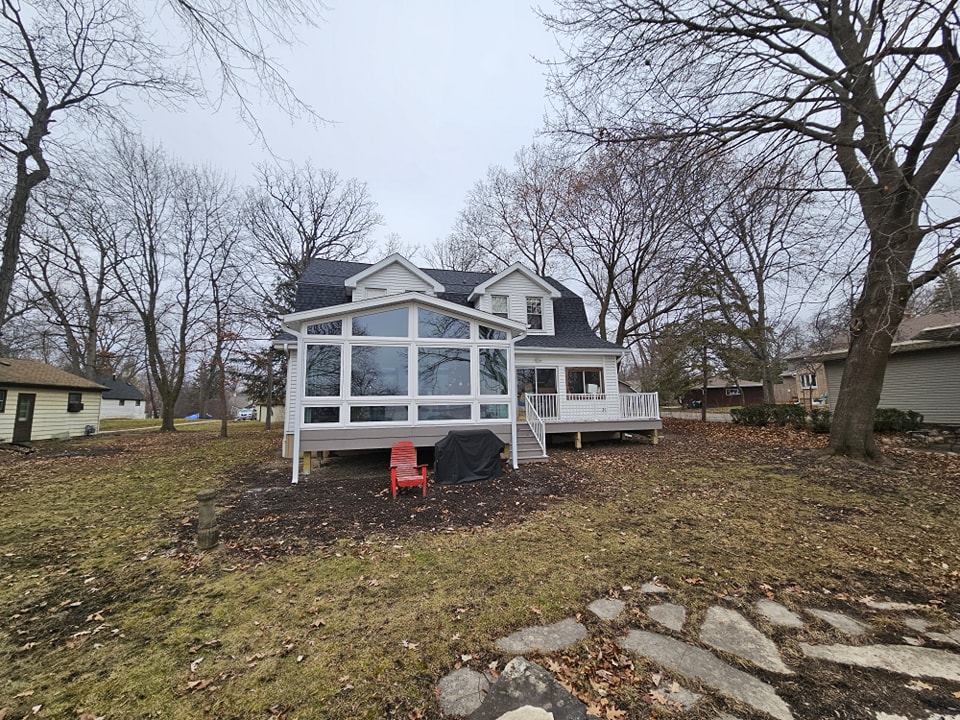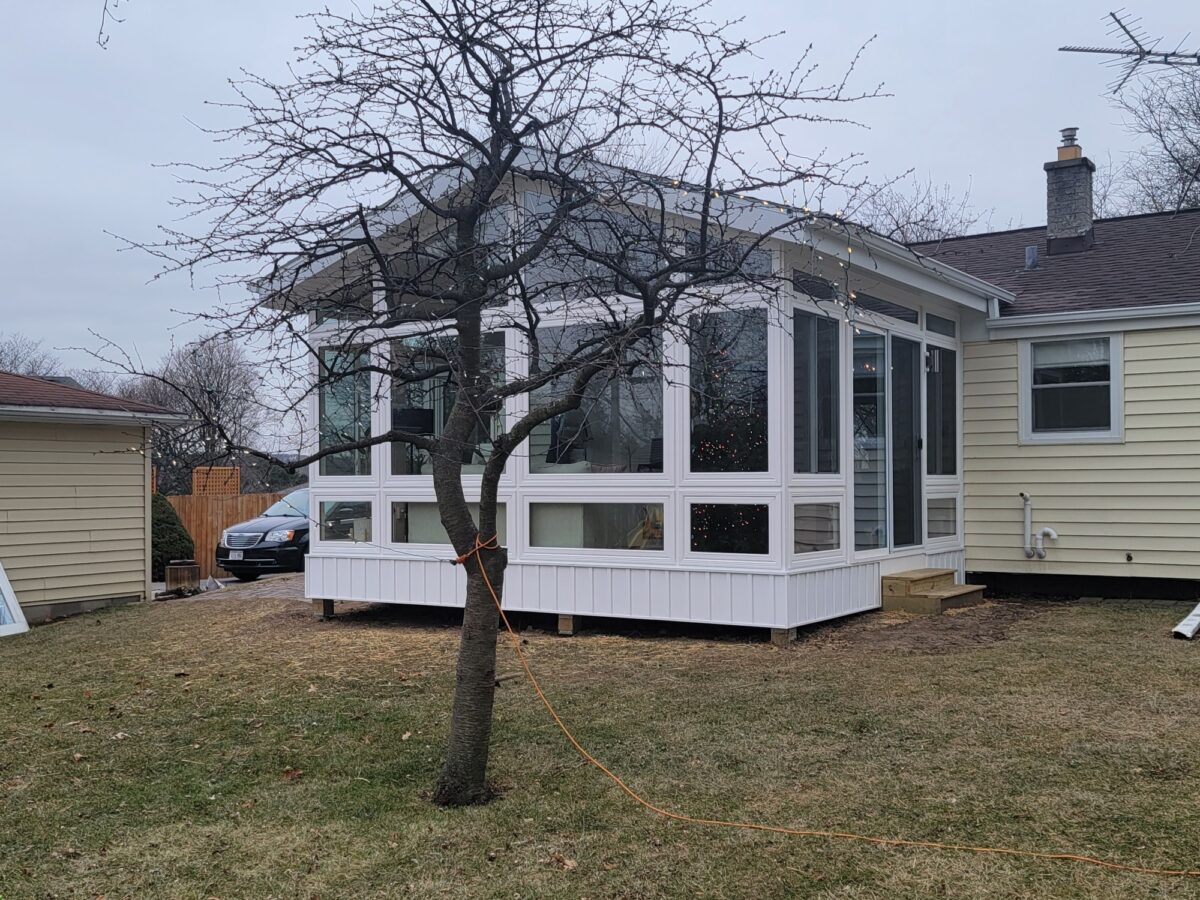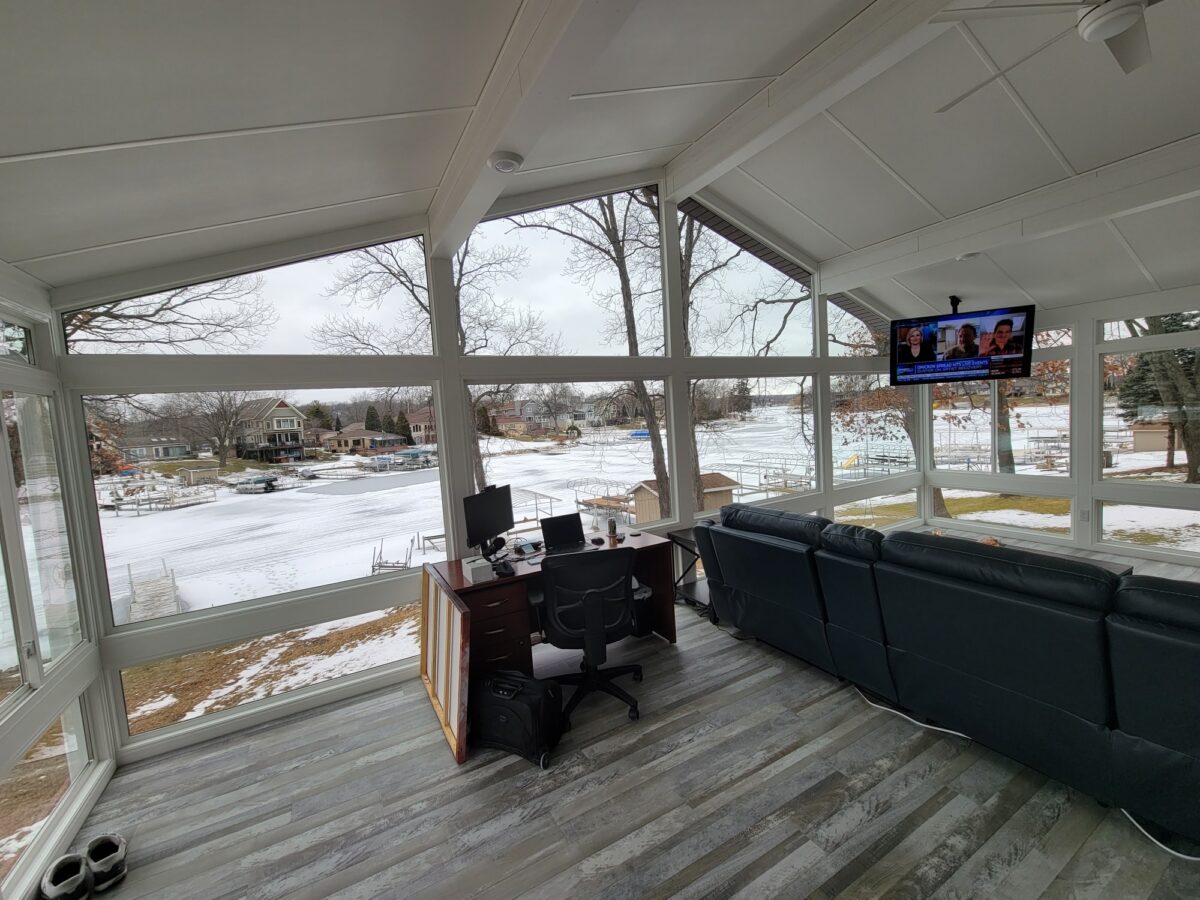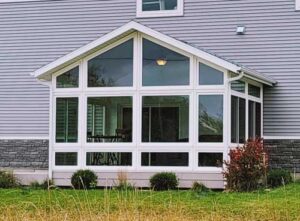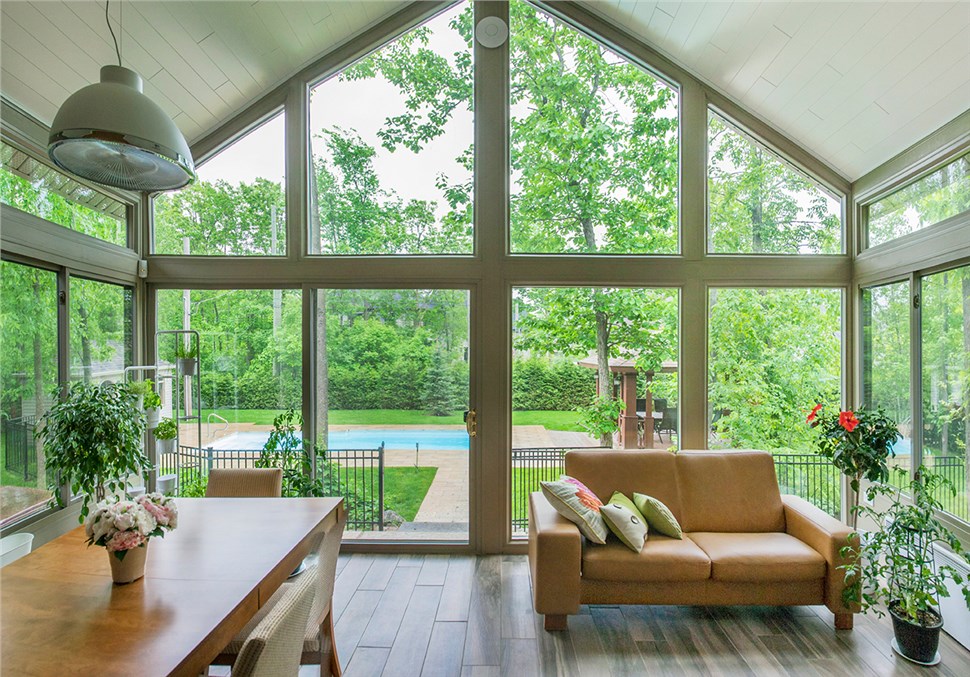
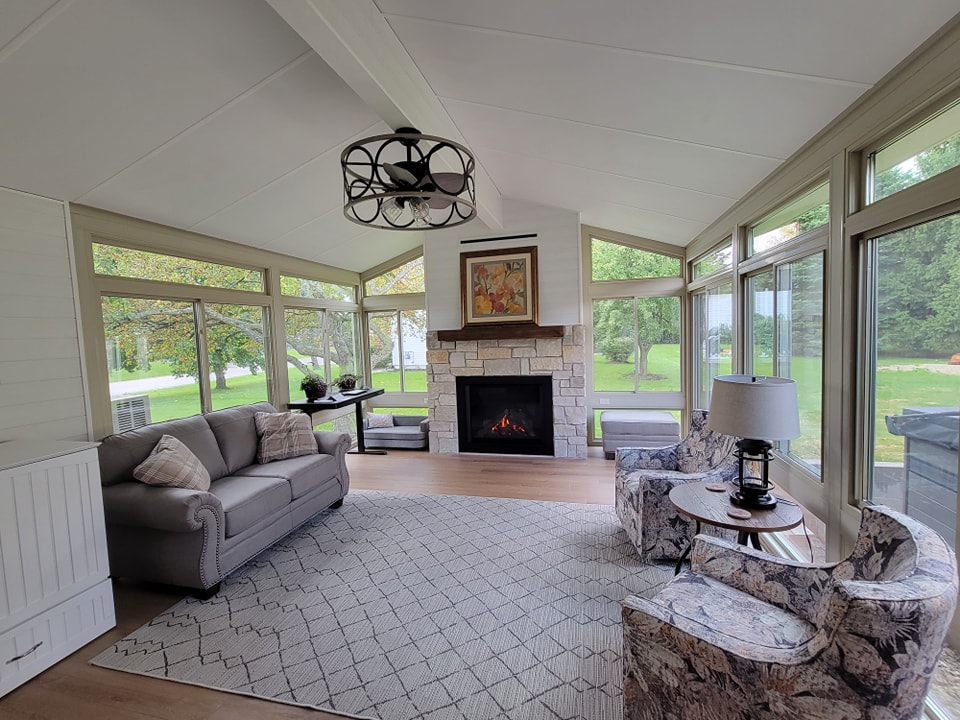
Sunroom Sanctuary: Navigating Costs and Considerations for Your Dream Space
The construction of an all-season room, commonly referred to as a sunroom, is a multifaceted process involving several stages, each with its own cost implications. The project begins with integrating the sunroom into the existing structure of the home. This integration often requires cutting into the existing home, which can add $2,000 to $5,000 to the total cost, depending on the complexity of the existing architecture and the extent of structural modifications needed.
Above and Below: Mastering Roofing Choices and Foundation Innovations for Your Sunroom
Roof work is another significant aspect of sunroom construction. The type of roofing chosen needs to complement both the existing home and the new sunroom. For a standard single-story sunroom, roofing costs can range from $2,500 to $5,000. However, if the design calls for a more complex roof structure or high-quality materials, this cost can increase significantly, potentially adding another $10,000 to $15,000.
In the foundational phase of constructing an all-season room, traditional methods are increasingly being replaced with more innovative solutions like helical deck supports. These supports are a type of deep foundation system that offers numerous advantages, particularly in terms of installation and long-term stability. Unlike traditional concrete foundations, helical deck supports are screwed into the ground, making them less invasive and quicker to install. This method significantly reduces the construction time and can lead to a decrease in labor costs, potentially saving homeowners about 10-15% compared to traditional foundation methods. The cost for installing helical deck supports typically ranges from $150 to $250 per pier, with the total cost depending on the number of piers required based on the size and weight of the sunroom structure.
Helical deck supports are particularly beneficial in areas with challenging soil conditions, as they can reach depths that are not easily achievable with traditional foundations, ensuring a stable and secure base for the sunroom. Moreover, they cause minimal disturbance to the surrounding landscape, which is advantageous for homeowners concerned about the impact of construction on their property. These supports are also adjustable, allowing for corrections in the event of ground movement or settling, thus offering a long-term solution to foundational stability. Given these benefits, opting for helical deck supports in the construction of a sunroom can be a cost-effective and reliable choice, especially in areas where soil conditions are a concern.
Material Matters: Balancing Cost and Efficiency in Sunroom Design
Regarding materials, the price of standard glass panels ranges from $55 to $75 per square foot, with high-efficiency options costing up to $100 per square foot. While aluminum frames are priced between $20 to $40 per square foot, making them a seemingly economical option, they come with notable disadvantages for sunroom construction. Firstly, aluminum is a high conductor of heat, which makes it less energy-efficient compared to other materials. This means that in colder climates, an aluminum-framed sunroom may lose heat rapidly, leading to higher heating costs. Conversely, in warmer climates, these frames can transfer external heat into the sunroom, increasing cooling expenses. Additionally, aluminum frames are prone to condensation, which can lead to moisture-related issues such as mold and mildew. This can compromise the air quality and comfort of the sunroom. Wooden frames, on the other hand, while ranging from $30 to $60 per square foot, offer better insulation and do not suffer from these condensation issues, making them a more suitable choice for maintaining a consistent indoor environment. Lastly, investing in energy-efficient materials can increase initial costs by 10-25% but reduce energy bills by 30-40%, making them a financially sound choice in the long term despite their higher upfront cost.
Cozy Comforts: Adding a Wood-Burning Stove to Your All-Season Room
Adding a wood-burning stove to an all-season room introduces both warmth and rustic charm, enhancing the space's ambiance and usability during colder months. The installation of a wood-burning stove involves several cost factors. Firstly, the stove itself can vary in price, typically ranging from $1,000 to $3,500, depending on its size, design, and heat output. The cost of installation, which includes proper ventilation and safety measures, adds an additional $500 to $1,500. This cost can increase if extensive work is needed to integrate the stove safely into the existing structure, such as creating a non-combustible floor base or adding a chimney or flue system, which could add another $1,000 to $3,000.
Moreover, it's crucial to comply with local building codes and regulations regarding wood-burning stoves, which might necessitate professional inspections and certifications, potentially incurring further costs. These regulations are in place to ensure safe operation and adequate ventilation, essential for maintaining indoor air quality and preventing hazards like carbon monoxide buildup. Overall, the total cost for adding a wood-burning stove to an all-season room, including the stove, installation, and any necessary modifications for safety and compliance, can range from approximately $2,500 to $8,000. This investment not only increases the functionality of the sunroom during colder seasons but also adds a unique aesthetic element to the space
Final Flourishes: Perfecting Your Sunroom with Essential Interior Finishes
The final phase of constructing an all-season room is the interior finishing, a stage that brings both functionality and aesthetic appeal to the space. This phase encompasses several key components, each contributing to the overall budget in unique ways.
- Electrical Work: Essential for lighting, power outlets, and potentially heating and cooling systems, the electrical installation is a critical component. The cost for this work typically ranges from $1,000 to $2,500. This variation in price is influenced by the complexity of the wiring needed, the number of outlets and light fixtures, and the integration of any specialized systems such as automated blinds or a home entertainment system. Hiring a licensed electrician is crucial for ensuring that all work complies with local building codes and safety standards.
- Flooring: The choice of flooring in a sunroom affects both its cost and its usability. For budget-friendly options, laminate flooring can range from $1,000 to $3,000, offering durability and ease of maintenance. Higher-end choices like hardwood or tile bring a premium look and feel, with costs exceeding $5,000, depending on the quality of materials and complexity of the installation. When selecting flooring, considerations such as exposure to sunlight, temperature fluctuations, and moisture levels are important, as they can impact the longevity and appearance of the flooring material.
- Painting and Finishing: The final touches of painting and finishing the interior can add another $1,500 to $3,000 to the project. This cost encompasses not just the paint but also the labor involved in preparing the surfaces, applying the paint, and finishing touches. The choice of paint type, whether standard latex or a more specialized option for higher durability, will affect the cost. Additionally, any decorative elements like custom trim work, molding, or unique wall finishes can increase the budget but also add a distinctive character to the sunroom.
Overall, these interior finishing costs - electrical, flooring, and painting - cumulatively add a significant amount to the total investment in an all-season room. However, they play a crucial role in transforming the space into a comfortable, functional, and aesthetically pleasing extension of the home. Therefore, while they represent an additional expense, they are integral to the value and enjoyment of the sunroom.
In summary, basic sunrooms start from $35,000 to $45,000, but the total cost can easily exceed $50,000 for more elaborate designs, especially when considering the expenses associated with structural modifications, foundation setting, roofing, window framing, and interior finishing. These costs are further influenced by the choice of materials, with energy-efficient options offering long-term savings despite their higher initial investment.
Transform Your Home with SEWI Sunrooms: Expertise Meets Elegance
As you navigate the complexities and possibilities of adding an all-season room to your home, SEWI Sunrooms stands as a beacon of expertise and commitment in this field. Our rich history of delivering exceptional sunroom solutions, tailored to each client's unique vision and requirements, ensures that your project is in capable hands. We pride ourselves on our meticulous attention to detail, high-quality materials, and a deep understanding of both aesthetics and functionality. By choosing SEWI Sunrooms, you are not just building a space but creating a sanctuary that enhances your home and lifestyle. We invite you to connect with our team of seasoned professionals to explore your options and turn your sunroom dreams into reality. Reach out to us for a detailed consultation and take the first step towards transforming your home with a beautiful, bespoke all-season room.

